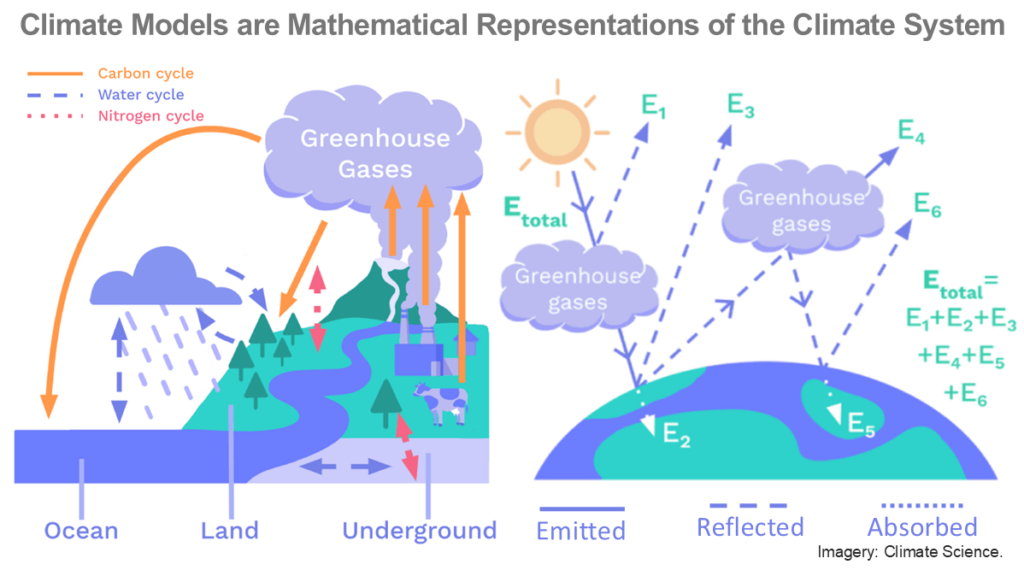Gregory Autin | April 3, 2025
Uncertainties characterizing climate science, the economy and their interrelationships are a compelling argument for considering ambiguity and misspecification in the economics of climate change. The Intergovernmental Panel on Climate Change's (IPCC) approach to dealing with uncertainty is like risk as defined in decision theory. Qualitative assessments mainly of climate change impacts combine evidence, subjective probabilities, and agreement among experts. Projections of global temperatures are based on scenarios that reflect different assumptions about scientific and socioeconomic characteristics of the future state of the world.1
EPFL scientists developed a tool to evaluate climate models, revealing that some predict a much hotter future due to high carbon sensitivity, suggesting current emission reduction efforts may be inadequate. The scientists at EPFL have developed a rating system and classified climate model outputs generated by the global climate community and included in the recent IPCC report. They find that roughly a third of the models are not doing a good job at reproducing existing sea surface temperature data, a third are robust and are not particularly sensitive to carbon emissions, while the other third is robust but predicts much stronger heating than the most probable IPCC estimate that also “are plausible and should be taken seriously”.2
The IPCC attributes observed climate fluctuations primarily to anthropogenic CO₂ emissions and claims that these emissions have caused a net radiative forcing of about 1 Wm-² (watt per square meter) since 1750, resulting in a global temperature increase of 0.8 to 1.1 °C. This recent study assesses these claims by contrasting them with unadjusted observational data and summarizing findings from the recent peer-reviewed literature and concludes that human CO₂ emissions constitute a mere 4% of the annual carbon cycle and are dwarfed by natural fluxes, and that natural processes offer a more consistent explanation of the observed trends.3
Source:
- Uncertainty and Climate Change: The IPCC Approach vs Decision Theory
- Could Climate Change Be Worse Than We Thought? New Models Say Yes
- A Critical Reassessment of the Anthropogenic CO₂-Global Warming Hypothesis: Empirical Evidence Contradicts IPCC Models and Solar Forcing Assumptions
#IPCC #Climate #Science #Model #Challenge


